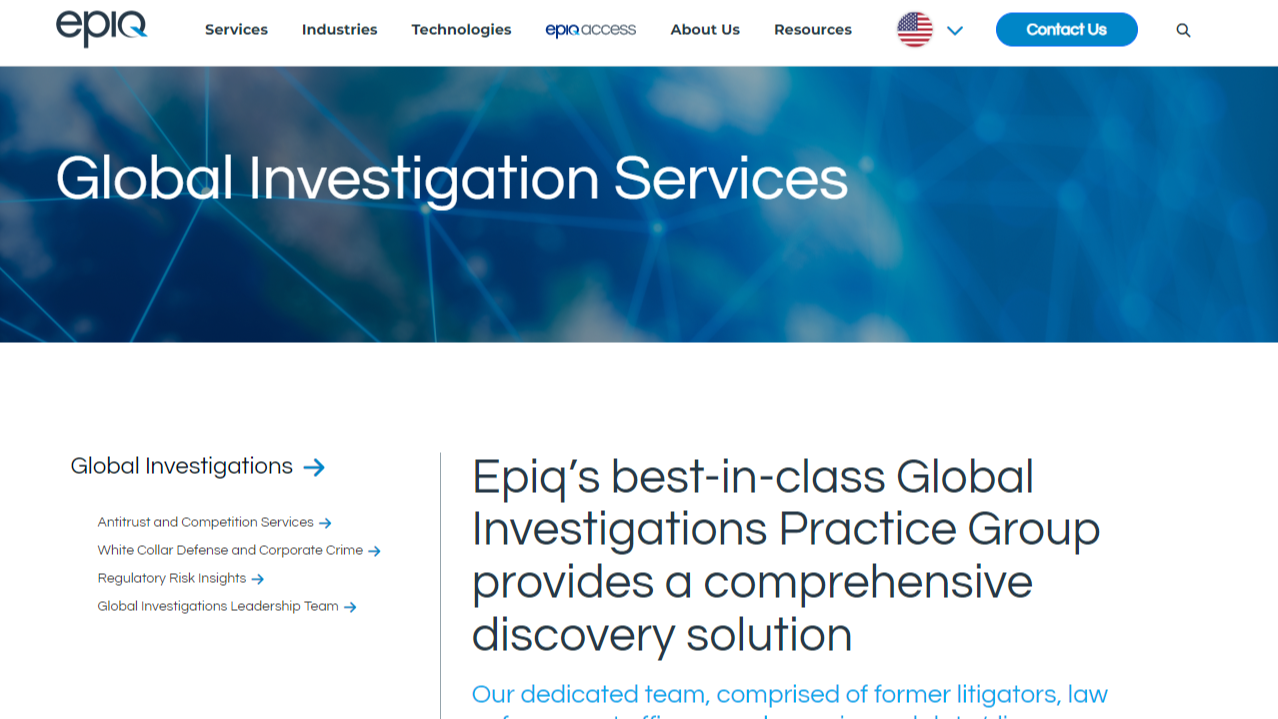Epiq, the global, technology-enabled legal services company, is today launching an antitrust and white-collar compliance product that uses artificial intelligence to help corporate legal departments identify, measure and act on risk within their organizations in real time.
The product, Regulatory Risk Insights, uses AI and substantive expertise to identify intelligence about communications that may create legal liability for a company, filtering out false positives through AI-based analysis, and then presenting the communication thread to analysts – all within 60 seconds of when potential misconduct is sent, Epiq says.
The product connects directly to data sources including Microsoft email and Team to scan ongoing communications and receive real-time notifications. Its accuracy improves over time as the AI model is trained through verification of positive or negative alerts.
The information the product provides enables corporate legal departments to quickly address potentially risky situations and, in some cases, make early applications for leniency, Epiq says.
“Risk management is of paramount importance to our clients, and we work closely with them to provide guidance on the latest requirements of global regulators,” said Erin Toomey, vice president and managing director of Epiq’s Global Investigations Practice Group. “It is becoming increasingly burdensome to satisfy regulatory deferred prosecution agreements for white collar compliance, and this tool successfully meets the DOJ’s standard of having a robust, supported, and data-driven compliance solution.”
Companies interested in testing this product can do so on a trial basis by joining Epiq’s Early Adopter Program, Epiq says. For a fixed fee, clients can participate in a 30-day trial that includes real-time analysis of Microsoft 365 emails for up to five U.S.-based employees and delivery of a Regulatory Risk Insights Findings Report.
 Robert Ambrogi Blog
Robert Ambrogi Blog